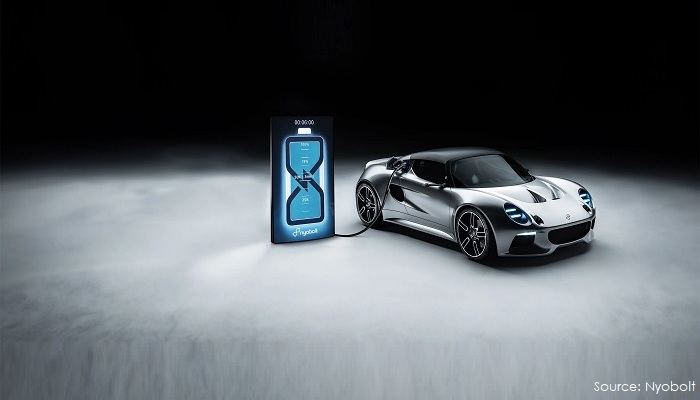Nyobolt’s Fast-Charge Battery Revolutionizes EV Technology

- Nyobolt, a British startup, unveils a 35kWh lithium-ion battery charging from 10% to 80% in over 4.5 minutes, significantly faster than current EV standards.
- Despite potential scalability challenges with niobium, Nyobolt’s innovation promises to reshape EV charging times and enhance battery longevity.
Nyobolt may have unwittingly solved one of the greatest challenges associated with electric vehicle ownership – lengthy charging times. Operating out of Cambridge, Nyobolt unveiled an advanced 35kWh lithium-ion battery capable of rapid charging from 10% to 80% in under four and half minutes during its live demonstration demonstration.
“This achievement significantly outpaces current fast-charging technologies like Tesla’s Superchargers, which typically take around 20 minutes for a similar charge. It brings EV charging times much closer to the convenience of filling up a gas-powered car, which usually takes about two minutes,” Nyobolt’s co-founder and CEO, Sai Shivareddy, remarked enthusiastically.
Nyobolt’s invention draws upon over ten years of research from University of Cambridge battery scientist Clare Grey and Shivareddy’s Cambridge education, combined with their rapid charging battery’s design that minimizes heat generation to ensure safety and longevity – in turn mitigating risks such as fire or explosion from lithium-ion battery overheating which often occurs.
Innovative anode materials also increase electron transfer efficiency for faster charging times without diminishing battery lifespan.
Nyobolt has entered discussions with eight electric car manufacturers about integrating its 35kWh batteries into future models of their models, although these batteries typically hold less capacity compared to typical EV battery packs. Nyobolt’s battery packs show promise of expanding into larger packs in the near future.
Current electric vehicle charging times have long been seen as a roadblock to their widespread adoption; particularly among long-distance travelers and corporate fleet owners. Paul Marchment of Arval commented on its advancement being particularly encouraging for these sectors.
However, Nyobolt’s technology faces additional obstacles beyond technological innovation. A shortage of ultra-rapid chargers like those used during testing hinders real world implementation in everyday scenarios; Jack Evans of Motoring Specialist emphasized a substantial expansion of charging infrastructure as essential to realizing its full potential and to fully capitalize on Nyobolt.
Shivareddy remains hopeful for the future, noting the growing adoption of fast chargers across both US and EU regions. He predicts rapid chargers becoming ubiquitous by the end of this decade to promote widespread adoption of high-power charging technologies.
Independent tests conducted on Nyobolt batteries have yielded encouraging results; over 4,000 fast-charge cycles showed longevity equivalent to 600,000.00 miles while maintaining over 80% capacity retention – surpassing current industry standards by an immense margin and potentially altering expectations for electric vehicle battery performance.
William Kephart, an expert on electric mobility issues, recognized that Nyobolt’s fast charging capabilities may theoretically work but highlighted manufacturing scalability as its biggest limitation.
Nyobolt’s breakthrough marks an important step toward eliminating key impediments to electric vehicle adoption, including range anxiety and high upfront costs. Collaborations between startups like Nyobolt and established automakers may pave the way for faster, more accessible EV technology in future innovations.











